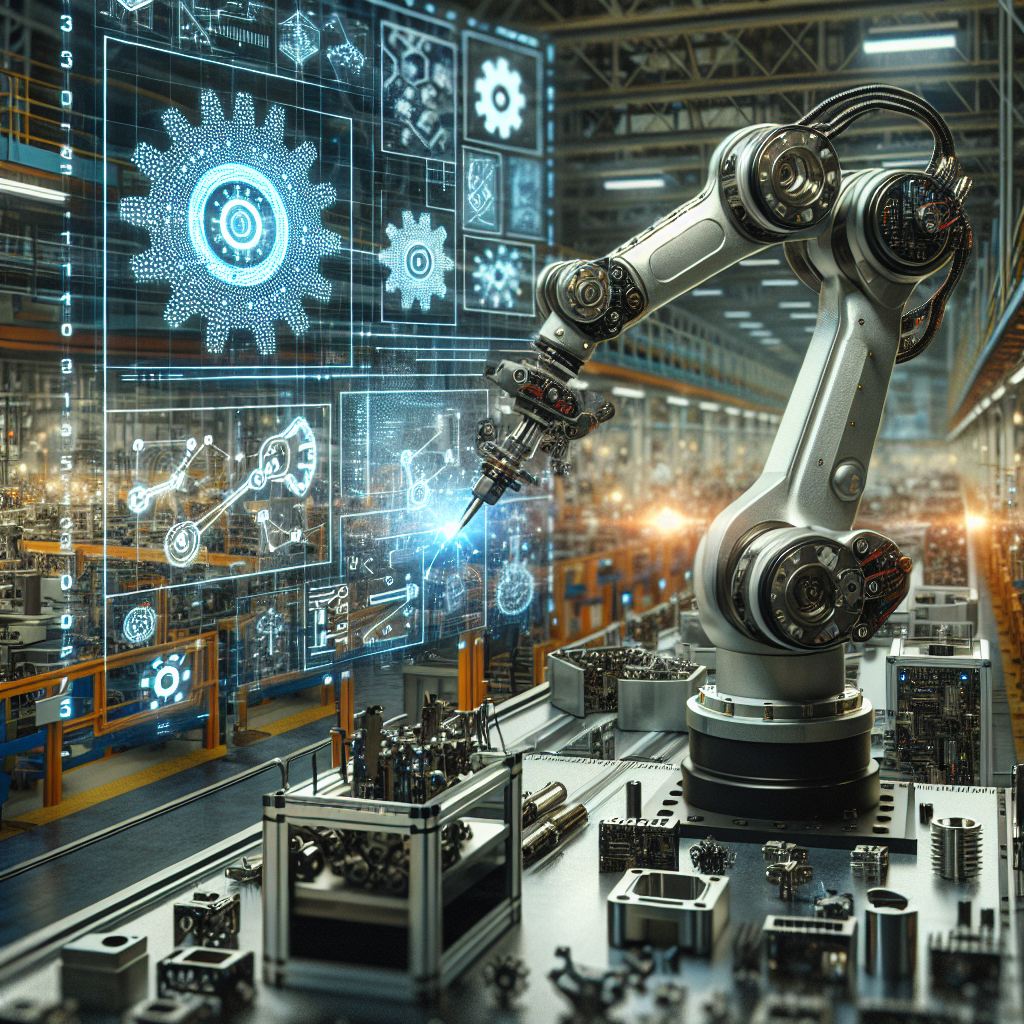Artificial Intelligence (AI) has revolutionized many industries, including manufacturing. One area where AI has had a significant impact is in quality control. In traditional manufacturing processes, quality control was often a labor-intensive and time-consuming task. However, with the use of AI, manufacturers can now automate and streamline their quality control processes, leading to improved efficiency, accuracy, and cost savings.
AI in Quality Control
AI can be used in a variety of ways to enhance quality control in manufacturing. One of the most common applications of AI in quality control is in the use of machine learning algorithms to analyze data from sensors and cameras on the production line. These algorithms can detect defects or anomalies in products much faster and more accurately than human inspectors, leading to improved product quality.
AI can also be used to predict and prevent defects before they occur. By analyzing data from past production runs, AI algorithms can identify patterns and trends that indicate a potential defect. Manufacturers can then take corrective action to prevent the defect from happening, saving time and money in the long run.
Another way AI is being used in quality control is through the use of robotic inspection systems. These systems use AI algorithms to analyze images of products and identify defects or inconsistencies. By using robots for inspection, manufacturers can reduce the risk of human error and ensure consistent quality control across all products.
Benefits of AI in Quality Control
There are several benefits to using AI in quality control in manufacturing. Some of the key advantages include:
1. Improved accuracy: AI algorithms can analyze data much faster and more accurately than human inspectors, leading to improved detection of defects and anomalies.
2. Cost savings: By automating quality control processes, manufacturers can reduce the need for manual inspection and save on labor costs.
3. Increased efficiency: AI can analyze data in real-time and provide instant feedback, allowing manufacturers to address defects quickly and prevent them from occurring in future production runs.
4. Consistent quality: By using AI for quality control, manufacturers can ensure consistent quality across all products, reducing the risk of defects and customer complaints.
5. Predictive maintenance: AI algorithms can also be used to predict when equipment is likely to fail, allowing manufacturers to schedule maintenance proactively and reduce downtime.
FAQs about AI in Quality Control in Manufacturing
1. How does AI improve quality control in manufacturing?
AI improves quality control in manufacturing by analyzing data from sensors and cameras on the production line, detecting defects or anomalies faster and more accurately than human inspectors. AI can also predict and prevent defects before they occur, leading to improved product quality.
2. What are some common applications of AI in quality control?
Some common applications of AI in quality control include the use of machine learning algorithms to analyze data from sensors and cameras, robotic inspection systems, and predictive maintenance algorithms.
3. What are the benefits of using AI in quality control?
Some of the key benefits of using AI in quality control include improved accuracy, cost savings, increased efficiency, consistent quality, and predictive maintenance.
4. How can manufacturers implement AI in quality control?
Manufacturers can implement AI in quality control by investing in AI software and hardware, training employees on how to use AI tools, and integrating AI into existing quality control processes.
5. Are there any challenges to using AI in quality control?
Some challenges to using AI in quality control include the initial cost of implementing AI systems, the need for skilled employees to operate and maintain AI tools, and concerns about data privacy and security.
In conclusion, AI has the potential to transform quality control in manufacturing by improving accuracy, efficiency, and consistency. By leveraging AI algorithms and robotic inspection systems, manufacturers can detect defects faster and prevent them from occurring, leading to higher product quality and cost savings. As AI technology continues to advance, we can expect to see even greater improvements in quality control processes in the manufacturing industry.

